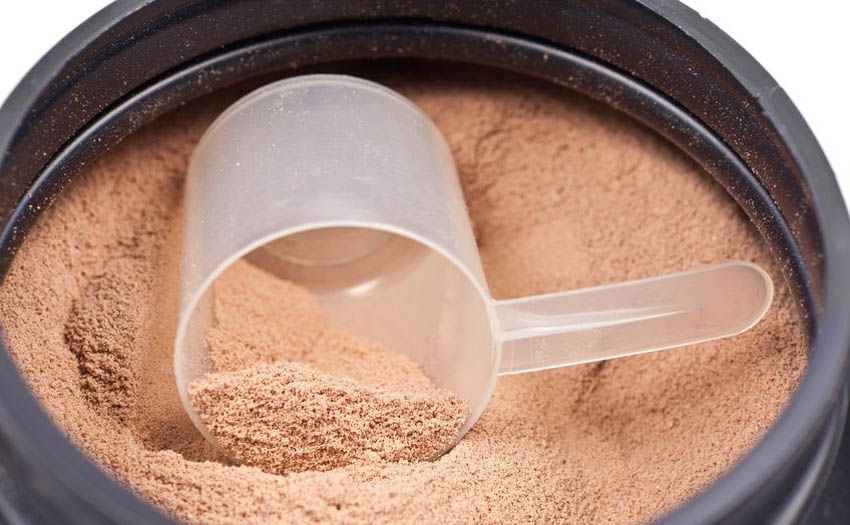Coconut Oil: Health Benefits, Nutritional Breakdown, Risks
Previously shunned by the health and wellness community for high saturated fat content, coconut oil has experienced a huge increase in sales and taken the media by storm in recent years. Coconut oil can be found not only in specialty health food stores, but at most local grocers as well.
Formerly unheard of, coconut oil is becoming more of a staple cooking oil in many households. Manufacturers are using coconut oil in favor of other oils in packaged products, and there are claims that coconut oil can do everything from supporting weight loss to slowing the progression of Alzheimer's disease. Nevertheless, many organizations such as the American Heart Association and the USDA continue to caution consumers against all tropical oils, including coconut oil.
Read on to find out more about the controversy surrounding coconut oil and if you should make coconut oil a staple in your diet.
This MNT Knowledge Center feature is part of a collection of articles on the health benefits of popular foods.
Possible health benefits of coconut oil
Possible health benefits associated with the consumption of coconut oil are included below, with details of the study research carried out.
Coconut oil is becoming more of a staple cooking oil in many households. There are claims that coconut oil can do everything from supporting weight loss to slowing the progression of Alzheimer's disease.
Coconut oil and cardiovascular disease
In a randomized clinical trial, 40 participants were given either 2 tablespoons of coconut oil or 2 tablespoons of soybean oil once a day for 12 weeks. The soybean oil group saw their HDL (good cholesterol level) go down and their LDL (bad cholesterol) go up, both markers of an increased risk for cardiovascular disease. The coconut oil group did not experience a significant change in their cholesterol numbers but were more likely to have a higher HDL level.1
Coconut oil and diabetes
Diets high in MCTs (65% of coconut oil's makeup) have been shown to improve glucose tolerance and reduce body fat accumulation when compared to diets high in LCTs. MCFAs have also been shown to preserve insulin action in, and insulin resistance in rat studies.2 Coconut oil may also improve insulin sensitivity in type 2 diabetics.
Researchers observed that study participants who followed a diet in which 40% of calories came from fat, either comprised of mostly MCTs or LCTs, the MCT group improved insulin-mediated glucose metabolism by 30% when compared with the LCT group.2
Coconut oil and weight loss
In the coconut oil versus soybean oil study described above, both groups lost weight however only the coconut oil group saw a decrease in waist size.1
Another study had participants consume 18-24 g of MCTs per day as part of a 16-week weight-loss program, which resulted in more weight loss and fat loss when compared to olive oil. These findings suggest that substituting oils high in medium chain triglycerides for those with long chain triglycerides could be beneficial for weight loss in healthy individuals.2
When compared with other fats, coconut oil contains 2.6% fewer calories. Keep in mind however that all high-fat foods and oils are calorically dense and simply adding in more calorically dense food to a diet already ample in calories is not likely to result in weight loss.
Coconut oil nutritional breakdown
According to the USDA National Nutrient Database, one tablespoon of coconut oil contains 117 calories, 0 grams of protein, 13.6 grams of fat (11.8 saturated, 0.8 monounsaturated and 0.2 polyunsaturated) and 0 grams of carbohydrate (0 grams of fiber and 0 grams of sugar). It provides little to no vitamins or minerals.
Coconut oil is made up of 100% fat. However, the structure of fat in coconut oil differs from the traditional saturated fat often found in animal products (primarily comprised of long-chain fatty acids).
Coconut oil has an unusually high amount of medium-chain fatty acids or triglycerides (MCFAs or MCTs), which are harder for our bodies to convert into stored fat and easier for them to burn off than long-chain fatty acids or triglycerides (LCFAs or LCTs).
Tom Brenna, a professor of nutritional sciences at Cornell University's College of Human Ecology, states that all coconut oils are not created equal.4 Partially hydrogenated coconut oil is just as harmful as other highly processed oils containing trans fat and clearly wreaks havoc on our health.
The second type, refined coconut oil, is extracted from chemically bleached and deodorized coconut meat. Virgin coconut oil, on the other hand, is extracted from the fruit of fresh mature coconuts without using high temperatures or chemicals, is considered unrefined and may paint an entirely different story for our health.
According to the Academy of Nutrition and Dietetics, virgin coconut oil has potential antioxidant properties due to certain plant nutrients it contains called phenolic compounds.5
Recent developments on coconut oil from MNT news
Coconut oil effective against Candida fungal infection
Candida albicans is part of the normal gut microbiome in humans and animals, but when the fungus gets out of balance in the body, it can cause infection. Though antifungal medications are sometimes used, a new study suggests coconut oil may be an effective treatment.
How to incorporate more coconut oil into your diet
Avoid any packaged or manufactured foods that contain partially hydrogenated coconut oil. When cooking, choose only virgin coconut oil and use it in moderation, as with all cooking oils.
Coconut oil has a lightly sweet and of course, "coconutty" flavor. It substitutes well for butter and can be added to granola for a healthy breakfast.
Coconut oil is best for baking because of it's lightly sweet and of course, "coconutty" flavor. It substitutes well for butter and shortening in recipes, and works well as a plant-based replacement for vegan recipes.
Store coconut oil in a cool, dark place. Like other saturated fats, it is solid when at room temperature and liquefies when heated.
Try some of these healthy recipes that incorporate coconut oil:
Lemon raspberry zucchini bars
Homemade KIND bars
Banana pumpkin power smoothie
Lightened up banana coconut granola
Potential health risks of consuming coconut oil
While there is credible evidence suggesting that the link between saturated fats and heart disease may not be as strong as we had previously thought, the USDA Dietary Guidelines continue to suggest avoiding saturated fats, including tropical oils like coconut.
Some health professionals argue that the medium-chain fatty acids in coconut oil have a positive effect on HDL and total cholesterol levels while others claim that MCTs have just of a negative effect in increases LDL levels, negating any positive heart healthy benefits.
The American Heart Association recommends limiting all saturated fats including those from tropical oils without discretion as to whether they contain MCTs.
Other critics of coconut oil insist that the studies being performed are for short periods of time, the number of study participants is too small, and many of the results stated have not been significant enough to prove any benefit to coconut oil consumption. Research is more sound and established in backing the health benefits of unsaturated fatty acids.
The most promising job for coconut oil that all could agree on is replacing trans fats and other over-consumed commercial vegetable oils in packaged and processed products.
Keep in mind that it is the total diet or overall eating pattern that is most important in disease prevention and achieving good health and it is better to eat a diet with a variety than to concentrate on individual foods as the key to good health.
Written by Megan Ware RDN LD-
Are You Sabotaging Weight Loss With These 4 Night Time Mistakes?
Losing weight is no easy
-
You are WHEN You Eat
Everyone knows that in order to lose weight you have to eat the rig
-
Is Losing Weight With Coconut A Scam?
There are so many different dieting plans around nowadays. Some of the
-
What Are The Best Ways To Naturally Increase Metabolism?
HOW YOUR THYROID AFFECTS METABOLISM In order to naturally increase yo
-
Follow the Calories In Calories Out Rule for Weight Loss
I need to lose weight. Chances are youve
-
Pringles For Breakfast.
So last Friday Johnnie and I flew north to the thriving metropolis
- DON'T MISS
- I Lost 145 Pounds. Heres What I Would Tell My Former Fat Self
- The Hidden Causes Of Your Inability To Lose Weight
- The 3 Tools I Used To Lose 145 Pounds
- Weight Loss Tips for Women Over 50
- Can Salads Cause Weight Gain?
- How to Program Your Mind to Lose Weight Effortlessly
- Nighttime Snacks You Don't Have to Sneak
- Eating Healthy When Eating Out
- What Is Metabolism
- Weight Loss After Gastric Band Surgery Can Improve Stress Incontinence in Women




